The Locked up Living Podcast: Surviving and thriving in prisons and other challenging environments
Can institutional culture challenge your mental health? What if your job makes you feel shame, sadness, grief, disgust and fear? What if you are expected not to feel? Or you are expected to be relentlessly competitive? What it’s like to live or work in a prison? Does working with people who commit murder, child abuse and rape affect people who work in prisons and the wider criminal justice system?
How do people survive and thrive when facing significant challenges to our emotional health over a lengthy period? How do we protect ourselves and stay compassionate, loving and trusting? Importantly, how do we find and preserve hope?
Fyodor Dostoevsky wrote that “The degree of civilisation in a society can be judged by entering its prisons”. In this weekly podcast ,your hosts, David Jones (Forensic psychotherapist) and Dr Naomi Murphy (Consultant Clinical & Forensic Psychologist) hope that exploring less visible aspects of prisons will help listeners see that prisons are a window into society and let us see people not only at their worst but also at their best. We feature a rich range of guests sharing snap shots of life in prisons and take a look at hospitals, schools, sport and the police in order to learn from other institutions. We learn about challenges to human integrity and hear important lessons and heart-warming stories about survival and growth when facing adversity in harsh places. We hope that sharing our conversations can help you make changes to your own relationship with institutions that might challenge your emotional health and well-being.
Follow and connect with us and give us feedback. Let us know what you think works, and also what doesn’t. We want you to look forward to the podcast each week. We’ll also be extremely grateful for any reviews that you give us. A simple star or two or a thumbs up will do.
Email: lockedupliving@gmail.com or connect with us on:
Substack: https://lockedupliving.substack.com
Twitter: https://twitter.com/LockedUpLiving
Linkedin: https://www.linkedin.com/in/naomimurphypsychologist/
https://www.linkedin.com/in/david-jones-41910b12/
Insta: https://www.instagram.com/lockedupliving/
Can institutional culture challenge your mental health? What if your job makes you feel shame, sadness, grief, disgust and fear? What if you are expected not to feel? Or you are expected to be relentlessly competitive? What it’s like to live or work in a prison? Does working with people who commit murder, child abuse and rape affect people who work in prisons and the wider criminal justice system?
How do people survive and thrive when facing significant challenges to our emotional health over a lengthy period? How do we protect ourselves and stay compassionate, loving and trusting? Importantly, how do we find and preserve hope?
Fyodor Dostoevsky wrote that “The degree of civilisation in a society can be judged by entering its prisons”. In this weekly podcast ,your hosts, David Jones (Forensic psychotherapist) and Dr Naomi Murphy (Consultant Clinical & Forensic Psychologist) hope that exploring less visible aspects of prisons will help listeners see that prisons are a window into society and let us see people not only at their worst but also at their best. We feature a rich range of guests sharing snap shots of life in prisons and take a look at hospitals, schools, sport and the police in order to learn from other institutions. We learn about challenges to human integrity and hear important lessons and heart-warming stories about survival and growth when facing adversity in harsh places. We hope that sharing our conversations can help you make changes to your own relationship with institutions that might challenge your emotional health and well-being.
Follow and connect with us and give us feedback. Let us know what you think works, and also what doesn’t. We want you to look forward to the podcast each week. We’ll also be extremely grateful for any reviews that you give us. A simple star or two or a thumbs up will do.
Email: lockedupliving@gmail.com or connect with us on:
Substack: https://lockedupliving.substack.com
Twitter: https://twitter.com/LockedUpLiving
Linkedin: https://www.linkedin.com/in/naomimurphypsychologist/
https://www.linkedin.com/in/david-jones-41910b12/
Insta: https://www.instagram.com/lockedupliving/
Episodes
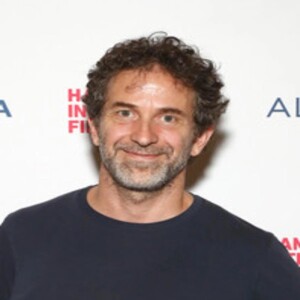
Wednesday Nov 08, 2023
173. Gethin Aldous, film and video game maker on award winning documentary, The Work
Wednesday Nov 08, 2023
Wednesday Nov 08, 2023
Gethin Aldous is film and video game maker who believes in the power of story to transform lives. He was co-director and executive producer of The Work documentary, winning a UK Grierson Award for Best International Doc and Best Cinema Doc. He has also been honored with a Ron Herring Award by the Mankind Project USA. Gethin has been involved in men's work for over a decade and has staffed group therapy retreats at Folsom Prison with Inside Circles and Massachusetts Correctional Institution at Norfolk with the Jericho Circle.
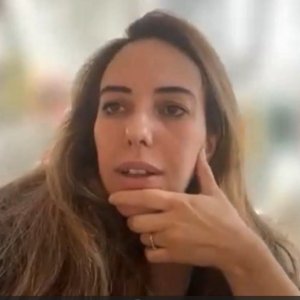
Wednesday Nov 01, 2023
Wednesday Nov 01, 2023
Stella Assange is a lawyer and human rights defender. Throughout her career, she has been an international advocate for human rights, most prominently in the case of her husband.
We are really pleased to welcome Stella to our podcast . Stella is a human rights lawyer who was born in South Africa and she's the wife of Julian Assange who's the founder of WikiLeaks and a prisoner at HMP Belmarsh and Stella and Julian have two children.
Julian Assange is held in the high security Belmarsh prison with the expectation that he will be extradited to the USA on charges related to the publication of government lies relating to, among others, the Iraq war.
Donate to Julian's legal costs here; https://www.crowdjustice.com/case/assangeappeal/
Donate to the UK campaign here; https://dontextraditeassange.com/donate/
Sign up here if ypu want to receive a text message on the upcoming hearing, when the date is known - https://dontextraditeassange.com/day-x/
Lobby your MP; https://dontextraditeassange.com/email-mp/
Other ways to help; http://www.freeassangeemergencytoolkit.com/
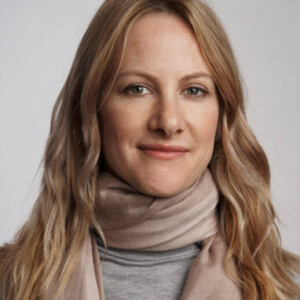
Wednesday Oct 25, 2023
171. Ros Watts: Integrating Psychedelics in Therapy
Wednesday Oct 25, 2023
Wednesday Oct 25, 2023
Ros Watts is a clinical psychologist whose work as the clinical lead for Imperial College, London's psilocybin trial has made her one of the most prominent voices in the field of psychedelics, she has been named as one of the 50 most influential people in psychedelics, as well as being in the top 16 women shaping up the field and you might recognize her from the Michael Pollan series on Netflix, "How to change your Mind".
Website: acerintegration.comInstagram: @acerintegration
https://www.drrosalindwatts.com/
https://acerintegration.com/

Wednesday Oct 18, 2023
170. Natalia Galicza: Abuse of power in California’s prisons for women.
Wednesday Oct 18, 2023
Wednesday Oct 18, 2023
Key points from the conversation;
- Natalia Galicza is a journalist who specializes in narrative non-fiction writing.
- She wrote an article titled "The Women That Me Too Left Behind" about abuse in federal prisons for women in California.
- The article focuses on the case of a former inmate named Melissa, who experienced abuse from the warden at the Federal Correctional Institution of Dublin.
- The abuse included sexual and physical misconduct, as well as grooming and manipulation. - The article highlights the power dynamics and vulnerability that incarcerated individuals face when trying to speak up about abuse within the prison system.
- The abuse at FCI Dublin is seen as indicative of a larger issue within the federal prison system, with widespread allegations and a culture of abuse.
- Efforts to address the issue include proposed reforms, such as increased transparency, independent investigations, and compassionate release for survivors of abuse.
- The Bureau of Prisons has been resistant to implementing these reforms, and advocates continue to push for change.
Natalia Galicza is a journalist from South Florida who specialises in narrative nonfiction writing.We talk to her about her article 'The women that ‘Me too’ left behind' a powerful investigation into abuses of power in California's prisons.
She graduated from the University of Florida with a bachelor's in journalism and a specialization in magazine and feature writing.
While at UF, Galicza led Atrium magazine through its first year as its founding executive editor. Atrium is UF's first student-led narrative nonfiction magazine, which aims to share deeply reported and artfully told stories about the Sunshine State.
She interned for the Bitter Southerner and the Miami New Times as an undergraduate student and has since written for Flamingo magazine, the South Florida Sun-Sentinel, and the Miami Herald.
She has also reported award-winning, long-form stories for WUFT News, an NPR affiliate newsroom in Gainesville, Florida, and Fresh Take Florida, a statewide news service through WUFT News.

Wednesday Oct 11, 2023
Wednesday Oct 11, 2023
While Sarah is a co-founder and CEO of CeraThrive she emphasises the imprtance of early morning and evening as a natural way to take the red light that we all need.
Sarah Turner has a postgraduate degree in Clinical Neuroscience from Roehampton University in London. She also holds BSc degrees in Psychological Sciences and Nutritional Medicine from Westminster University and Thames Valley University, respectively. Currently, she is pursuing a diploma in Photobiomodulation at the University of Montpellier in France. During the initial decade of her career, Sarah worked as a research scientist in the pharmaceutical industry. Her role involved planning and conducting experiments to examine the impact of electrostatics on physiology.
Sarah actively participates in the Biohacker movement and has had the opportunity to interview prominent thought leaders, visionaries, and experts in the field of Biohacking. Through these interactions, she has gained a deep understanding of the crucial role of physics in relation to biology. This has ignited her interest in the areas of quantum biology in health, photomedicine, and consciousness studies. Sarah's primary focus lies in photobiomodulation, which involves utilizing specific light wavelengths and pulsed frequencies to enhance optimal functioning, with a specific emphasis on brain-related issues. As the Co-Founder and CEO of CeraThrive, she spearheads the production of a red light therapy system that specifically targets the gut-brain connection.
https://www.cerathrive.com/about-us

Wednesday Oct 04, 2023
168. Rebecca Morgan. Sex and sexuality among inpatients (and prisoners).
Wednesday Oct 04, 2023
Wednesday Oct 04, 2023
Rebecca Morgan is a trainee clinical psychologist who's exploring how people in hospital express their sexuality. We spoke with Rebecca after seeing an advert she posted for research participants, and it really made us wonder why we'd taken so long for this subject to be explored.
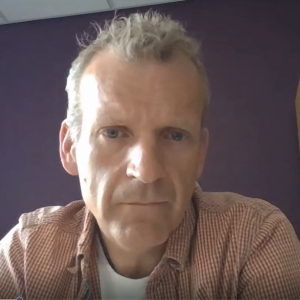
Wednesday Sep 27, 2023
167. Jamie Bennett. New Managerialism and prisons
Wednesday Sep 27, 2023
Wednesday Sep 27, 2023
See key points at the bottom.
Dr. Jamie Bennett has worked in prisons and wider criminal justice system since 1996 and held a number of senior positions. He is currently Chief Strategy Officer at the Youth Justice Board for England and Wales. He was previously Governor of HMP Long Lartin, a high security prison; HMP Grendon, the only prison to operate entirely as a series of therapeutic communities; HMP Springhill, an innovative open prison which helps men to prepare for their release and resettle into the community, and; HMP Morton Hall, a women’s prison working with a diverse international population.
Jamie was editor of the Prison Service Journal for 17 years and has published over 100 articles and reviews in peer review publications covering topics including: prisons and the media, social inequality and imprisonment, and the development of managerialism. He is the author of The Working Lives of Prison Managers: Global change, local cultures and individual agency in the late modern prison (Palgrave MacMillan 2015), The Penal System: An Introduction Sixth Edition (with Paul Cavadino, James Dignan and George Mair, Sage 2019) and Prisoners on Prison Films (with Victoria Knight, Palgrave MacMillan, 2021). He has also produced four other books: Understanding Prison Staff (ed with Ben Crewe and Azrini Wahidin, Willan 2008); Dictionary of Prisons and Punishment (ed with Yvonne Jewkes, Willan 2008); The Prisoner (ed with Ben Crewe, Routledge 2011), and; Handbook on Prisons (ed with Yvonne Jewkes and Ben Crewe, Routledge, 2016).
Much of his writing has been on the management of prisons and most recently on the disruption to such management by the pandemic in his paper ‘Disrupting prison managerialism: Managing prisons in an age of pandemic’
Key points from the conversation;
1. The process of managerialism in the prison system can be dehumanizing and lead to a focus on meeting targets rather than caring for people.
2. There had been a shift in the culture of management, with a greater emphasis on targets and less commitment to broader corporate approaches.
3. The disruption caused by the pandemic led to a recalibration of the relationship between national and local levels of management, giving managers more discretion in implementing guidance.
4. The pandemic also led to a reinvigoration of a sense of place and community, with managers focusing more on the needs of their local community.
5. The experience of managers may have differed from that of ground floor staff, who sometimes felt ignored by top-level management.
6. The prison system experienced a shift from performance targets to change management in order to achieve reductions in resources.
7. There are ongoing changes in the prison system to give more choice and discretion to high-performing managers and to push strategic decision-making to a more local level.
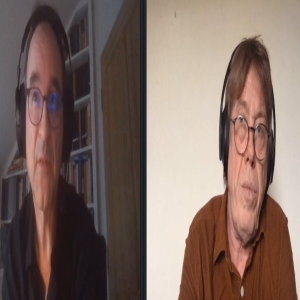
Wednesday Sep 20, 2023
Wednesday Sep 20, 2023
Today's conversation is with Chris Scanlon and John Adlam. Chris and John are both psychotherapists and they worked together at the Henderson Hospital which was sadly and unjustly defunded in 2008. They prefer to think of themselves as working and thinking as inter-professional and trans-disciplinary. They have worked together for about twenty years and written a number of papers around the theme of the unhoused mind. In 2022 they published the highly praised book ‘Psycho-Social Explorations of Trauma, Exclusion and Violence: Un-housed Minds and Inhospitable Environments’
Christopher Scanlon is a psycho-social consultant/researcher and consultant psychotherapist in forensic and adult mental health. He is a training group analyst and the Institute of Group Analysis and the Irish Group Analytic Society, and founder member of the Association for Psychosocial Studies.
John Adlam is a group psychotherapist and independent researcher, working mainly in the National Health Service, UK. He is a founder member of the Association for Psychosocial Studies and a former Vice President of the International Association for Forensic Psychotherapy.
https://www.routledge.com/Psycho-social-Explorations-of-Trauma-Exclusion-and-Violence-Un-housed/Scanlon-Adlam/p/book/9780367893316
Key points from the conversation.
1. The conversation is focused on themes from a book that explores social, political, and individual dynamics.
2. The authors emphasize the use of parable, storytelling, poetry, myth, and allegory to convey their ideas.
3. They discuss the need to avoid using other people's stories and instead focus on lived experiences and conversations.
4. The conversation touches on the current state of ruling powers and the potential for a depressing exploration of societal issues.
5. The authors discuss the benefits of working together on projects and the importance of collaboration and multidisciplinary approaches.
6. They mention the need for psychologists and psychotherapists to engage more with the world outside of their consulting rooms and to work together with other professionals.
7. The authors express a sense of passion and hope in addressing societal issues, despite the potential for suffering.
8. The conversation concludes by highlighting the rewarding nature of the book and the depth of its ideas.
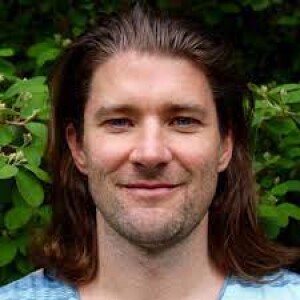
Wednesday Sep 13, 2023
165. Kym Staton, Filmaker: Tragedy and injustice of Julian Assange, founder of Wikileaks
Wednesday Sep 13, 2023
Wednesday Sep 13, 2023
This conversation features award winning film director Kym Staten, who's based in Australia. Kim has devoted nine years to the documentary industry.
He's the founder and director of Films4Change, an educational enterprise that's been operating since 2014. And initially Films4Change was a hybrid distributor bringing live in person cinema screenings. of documentary films to 90, 90 cities across the world, including Australia, New Zealand, New Zealand, the UK and America.
During the pandemic, Films4Change evolved into streaming with their platform, Films4Change.stream, launching in May 2020. (https://filmsforchange.stream/) In 2021, Kim put himself behind a camera and a pen and he lends his highly trained eye for subject interpretation and narrative to direct his first documentary. The Trust Fall, includes eight animations and 23 interviews with Kim directing, co producing and writing the powerful narration for the film. (https://www.cinemanova.com.au/films/mdff-trust-fall-julian-assange-the)
This powerful film has won various awards and continues to be shown in festivals all around the world as it gears up for cinema release. We have watched quite a few films about Julian Assange and WikiLeaks and whilst most made us feel predominantly very angry, The striking thing about this film was it also made us feel deeply sad.
Key points from the conversation;
The film discusses the mistreatment and violation of due process in Julian Assange's case, including manipulation of evidence. - The film includes animation to provide a brief overview of the history of free speech. - WikiLeaks is known for publishing accurate and thoroughly researched documents. - The filmmaker reached out to various individuals, including John Shipton, Daniel Ellsberg, Tariq Ali, Nils Melzer, and John Pilger, to be interviewed for the film. - The film focuses on the treatment of Julian Assange and the decline of press freedom. - The filmmaker wanted to explore the reasons behind Julian Assange's persecution and the lessons to be learned from his exposures. - The accusations of rape against Julian Assange were seen as a way to destroy his character. - The plan to destroy Julian Assange and WikiLeaks involved a team of individuals assigned to the task.
The United States has played a significant role in various aspects discussed. Here are some key points:
The United States has been at war for a significant portion of its existence, with 235 out of 247 years being marked by war.
The U.S. has been responsible for 20 million deaths, although it is not specified in what context or time period.
The U.S. has 750 overseas military bases, indicating its global military presence.
The film highlights the shocking figures related to the Iraq war, including three million deaths (with 80% being civilians), five million orphans, and nine million refugees.
The film also features footage of unarmed civilians being murdered by American forces, which is described as a war crime and embarrassing for the U.S. government.
The U.S. government is implicated in the plan to destroy Julian Assange and WikiLeaks, with evidence of a task force assigned to this purpose.
The U.S. government is accused of covering up the truth about the killing of civilians in New Baghdad in 2007, where Reuters journalists were mistaken for carrying weapons and were shot down.
The document does not provide a comprehensive overview of the United States' involvement in various global events or its foreign policy. It focuses on specific aspects related to war, military presence, and the treatment of Julian Assange.
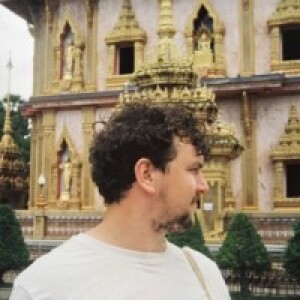
Wednesday Sep 06, 2023
164. Joseph Davies: food and obesity in psychiatric and forensic populations.
Wednesday Sep 06, 2023
Wednesday Sep 06, 2023
Dr Joe Davies, Chartered Psychologist, and lecturer in Applied Psychology at Cardiff Metropolitan University. Joe’s research primarily explores the causes and consequences of obesity within secure psychiatric inpatient services. Following his PhD, Joe worked for the National Collaborative Commissioning Unit of NHS Wales on Welsh Government commissioned projects aimed at improving care for secure inpatients, subsequently publishing the national review of secure inpatient services: Making Days Count. (See main points of the conversation below)
Weight Gain is Not Associated with Antipsychotic Medication, Sociodemographic Factors, or Diagnosis in a Welsh Secure Mental Health Unit (tandfonline.com)
https://orcid.org/0000-0002-6011-8591
Main points from conversation,
- The conversation is about the issue of weight gain and obesity in forensic health and prison settings. - We discuss the lack of data on whether going to prison or hospital leads to weight gain or weight loss. - The importance of interviewing patients to understand their experiences and perspectives is emphasized. - We mention the potential link between overeating and trauma as a way of protecting oneself. - Attentional bias, where individuals pay more attention to salient stimuli, is discussed as a potential factor in weight gain. - The lack of integrated physical health care in forensic settings is highlighted. - The need for better nutrition and healthier behavior in prisons is mentioned. - The importance of patient involvement in shaping policy and improving care is emphasized. - The complex interaction of various factors contributing to weight gain is acknowledged. - The lack of input from nutritionists in forensic settings is mentioned. - We highlight the need for more research and awareness to bring about lasting change in addressing weight gain and obesity in forensic health and prison settings.

Wednesday Aug 30, 2023
163. Eileen Chubb: Founder of Compassion in Care on Whistleblowing and social care
Wednesday Aug 30, 2023
Wednesday Aug 30, 2023
See the main points at the bottom.
Eileen is one of the BUPA7 whistleblowers, the first case to use uk whistleblowing law. As a result of her experiences She founded the charity 'Compassion in Care' to help protect vulnerable elderly people and whistleblowers. They have to date supported13k whistleblowers and 9k families of abuse victims. Eileen has written three books
'Dismantling the façade'
https://www.amazon.co.uk/dp/1915643910/ref=syn_sd_onsite_desktop_0?ie=UTF8&psc=1&pf_rd_p=9063114e-563d-44f5-8cdc-badd8f379876&pf_rd_r=DWTEV4066KWQTGC0G10S&pd_rd_wg=QgaS0&pd_rd_w=0w3JF&pd_rd_r=22971bf0-50ce-4f52-9d8e-cccdba5ee61a
There is no me in whistleblower, the case for Edna’s Law
https://www.amazon.co.uk/THERE-NO-ME-WHISTLEBLOWER-TWO-ebook/dp/B084X7W89B/ref=sr_1_1?crid=2KED63MHR2HLS&keywords=There+is+no+me+in+whistleblower+eileen+chubb&qid=1688138105&s=books&sprefix=there+is+no+me+in+whistleblower+eileen+chubb%2Cstripbooks%2C76&sr=1-1
They also have a petition for Edna’s law https://www.change.org/p/protect-the-protectors-with-edna-s-law-need-one-law-for-all-whistleblowers-ednaslaw-whistleblowing
Their website www.compassionincare.com has extensive information on both whistleblowing and abuse of vulnerable people.
Their most recent reports include abuse of LGBTQ elders. How the proposed whistleblowing law is currently being dictated by those with financial interests in exploiting whistleblowers. This is a small sample of their work.
https://compassionincare.com/news/stripped-of-pride/
https://compassionincare.com/news/democracy-what-vested-interest-cash-buys/
https://compassionincare.com/news/no-owb-our-letter-to-the-prime-minister/
They also founded https://www.thewhistler.org/ for whistleblowers from all other sectors.
Main points from the conversation
Eileen and six other whistleblowers witnessed abuse in a care home.
They reported the abuse to their manager, who told them to gather evidence.
Eileen believed that reporting the abuse would save lives. But she found that reporting alone did not bring change.
She initially felt alone and isolated in their fight against the abuse.
The experience transformed Eileen into an outspoken advocate for justice.
Eileen believes that whistleblowers should be compensated for the loss of trust they experience.
She learned about the justice system through reading "The Rule of Law" by Tom Bingham.
Eileen criticizes the way whistleblowers are treated differently based on the sector they work in.
The inquiry report that supported the whistleblowers' claims was initially suppressed by Bupa.
The head of Bupa care homes denied the allegations and called the whistleblowers liars.
Eileen and the other whistleblowers had to go to the media to expose the abuse.
The abuse allegations were supported by evidence and independent reports.
Eileen found fulfillment in caring for patients with dementia.
Eileen highlights the difference in whistleblower protection between the US and the UK.
In the US, whistleblowers can receive financial rewards, while in the UK, they may only get their job back.
Eileen acknowledges the importance of a courageous individual who released the suppressed report in court.
Bupa hid abusers in other care homes, and the whistleblowers conducted surveillance to gather evidence.

Wednesday Aug 30, 2023
162. Julian Reid: Addiction, Recovery and prisons
Wednesday Aug 30, 2023
Wednesday Aug 30, 2023
In this episode, we hear from Julian Conor Reid, an NHS drug and alcohol recovery worker at HMP Grendon. Julian shares his personal journey of addiction and recovery, highlighting how his own experiences have shaped his career path. He discusses the challenges of alcoholism and the inability to control or moderate drinking. Julian's story offers valuable insights into the world of addiction and the importance of recovery. Tune in to gain a deeper understanding of addiction and the work being done in custodial environments to support individuals on their recovery journey.
TIMESTAMPS[00:01:04] Julian's journey
[00:07:22] Addiction and its definition.
[00:08:16] Addiction ahead of other areas.
[00:13:59] Advantage of having a lived experience.
[00:23:32] Limitations/vulnerabilities of having had a lived experience.
[00:28:04] Substance abuse/addiction in prisoners
[00:31:32] Effects of custodial period in addicts
[00:33:59] Environmental effects on addicts
[00:37:02] Toxic compassion in the recovery process
[00:40:35] Application of lived experience in other addict fields.
[00:45:39] Spiritual prominence in addicts.
[00:53:55] Keeping yourself emotionally nourished
RESOURCES MENTIONED12 Step recovery movement
Connect with Jullian Reid on LinkedInConnect with Dr. Naomi Murphy on LinkedInConnect with David Jones on Linkedin
Thanks for tuning in!
If you liked our show, please LEAVE A 5-STAR REVIEW, like, and subscribe!
Find us on the following streaming platforms:
Podbean
Apple
SpotifyAmazon Music
Google Podcasts
IHeart RadioPlayerFMPodchaser
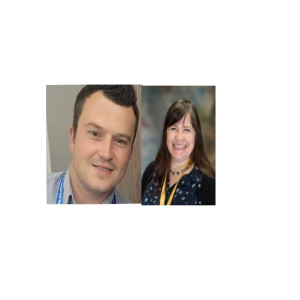
Wednesday Aug 23, 2023
Wednesday Aug 23, 2023
See show highlights below.
David Russell is Community Safety & Justice Manager at Midlothian Council and the lead for the development of Restorative Justice. Prior to this he was a senior practitioner with Barnardo's specialising in work with children and young people with harmful sexual behaviour and / or who had experienced sexual abuse or exploitation. David has extensive experience in providing assessments and interventions for vulnerable children, adolescents and adults within the field of sexual harm and
violence and has also worked in custodial settings. David provides training independently on a range of themes about sexual violence and has facilitated multi-disciplinary training internationally. He currently sits on the NOTA Scotland executive committee and is the chair of the Community Justice Scotland network. He is also the chair of the national advisory panel for the third sector organisation, Thriving Survivors in which he supports the practice and development of restorative justice in cases of sexual harm.
Gael Cochrane is a Learning Development and Innovation Lead for Community Justice Scotland, tasked with driving learning through innovation. Gael focuses on the design and delivery of world-class training and professional development in collaboration with justice sector partners and the wider Scottish workforce.
The researchers found that reading and transcribing content related to sexual harm had a significant impact on them emotionally.
They emphasized the importance of maintaining a non-biased approach and outlining the goals and objectives of their research.
The researchers acknowledged the consuming nature of their work and the need for a balance and a switch-off point.
They discussed the high levels of self-disclosure and the significance of understanding the psychosexual development of individuals involved in restorative justice.
The researchers highlighted the need for well-trained facilitators and a better understanding of the nature of sexual harm for organizations working with victims.
They emphasized that sexual harm is not a homogeneous issue and that different cases require different approaches.
The researchers found that the majority of the men interviewed took responsibility for the harm they caused and had a good understanding of restorative justice.
They mentioned the challenges of justifying their work, particularly in the face of criticism from feminists.
The researchers emphasized their motivation to prevent future harm and improve the lives of individuals involved in sexual harm.
They discussed the importance of debriefing and having a safe space to express emotions, as well as the need to switch off and engage in other activities for self-care.
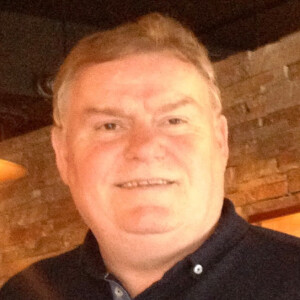
Wednesday Aug 23, 2023
160. Harry Maguire: Restorative justice in Northern Ireland.
Wednesday Aug 23, 2023
Wednesday Aug 23, 2023
See the conversation highlights at the bottom
Harry Maguire was the Director of Community Restorative Justice Ireland from 2011-2022. He has a long record in peace work since being released from prison in 1998. A Republican ex-prisoner Harry has spent 25yrs working on peace building projects across Belfast, from Chairing Interaction Belfast a cross community interface project through to spearheading engagement between Nationalist communities and the Criminal Justice System.
The work of developing restorative justice and community safety projects has been the focus of his work for 24yrs. Harry is an accredited restorative practitioner, trainer and facilitator. He is an experienced mediator and has worked with all the agencies that compromise the CJS. Harry views the building of positive working relationships based on mutual respect as key to advancement for communities who wish to have a say on all matters criminal justice.
Harry also chaired the first West Belfast Community Safety Forum, an important and valuable project that was the first opportunity for Community and the CJS to collectively engage across a range of issues. Harry has also sat on the Principle PCSP and the RJ Forum NI.
Harry has travelled the length and breadth of these islands presenting the lessons learned from his experience in developing RJ projects to a wide and varied audience. From communities in need, Criminal Justice Agencies and academia, all have been able to avail of the knowledge gained. This has been so of the international community who watch and learn from the work of the community based restorative justice programmes in the north.
1. Community Restorative Justice Ireland is involved in restorative justice and restorative practice.
2. They work in communities affected by conflict and violence.
3. They aim to address the underlying issues and not just the presenting issue.
4. They believe in involving the community and individuals in finding solutions.
5. They have seen positive outcomes and resolution through their work.
6. They advocate for strategic approaches and early intervention.
7. They have expanded their work to different areas.
8. They emphasize the importance of understanding the drivers and dynamics of conflict.
9. They believe in teaching conflict resolution skills from a young age.
10. They have worked with both Catholic and Protestant communities.
11. They faced challenges in engaging with the police due to the legacy of conflict.
12. They believe in addressing antisocial behavior, crime, and criminality in the community.
13. They mention violent responses to crime, including executions and beatings.
14. They believe in finding non-violent and dialogue-based solutions.
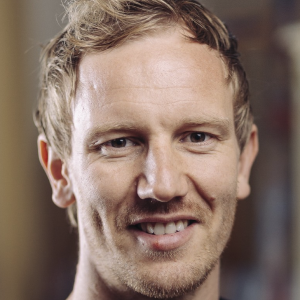
Wednesday Aug 16, 2023
159 Jan Rosenthal:How does a career in elite sport impact on well-being?
Wednesday Aug 16, 2023
Wednesday Aug 16, 2023
It is not often that we get to talk to an elite sportsperson (Tanni Grey Thompson excepted) but Jan Rosenthal, midfield giant from the German League talks about his life on the field, the culture enveloping elite and yound players and the challenges of an empty life after retirement or career failure. Jan talks about his own work in helping players and others in making these adjustments. Jan is also notable for being a rare example of an outfield player in a major league, saving a penalty. He didn't even boast about this when I mentioned Wolfsburg in the convesation.
https://gfycat.com/plaintiverawjoey-goalkeeperhighlights
Today’s guest is Jan Rosenthal who is a former professional football player and has played for German First League Clubs like Hannover 96, SC Freiburg and Eintracht Frankfurt.He’s now 37 years old and lives with two kids with the age of 4 and 6 in Oldenburg, Northern Germany.Jan was described by Jonathan Harding as being “ahead of your time’. He writes “The youngster who swapped the German countryside for Hannover’s academy was one of Germany’s rising stars but his love for the game wained the longer he was in it.Football demanded so much of him that there was little room for anything else. And he previously said of hisr footballing career: “Every day you’re physically in the fight or flight mechanism. So much happens unconsciously that there’s no space to find a way through,” Today, Jan is trying to work with individuals and clubs to make sure players have the space and time during their career that he never had in order to deal with feelings that impact both their lives and performance.
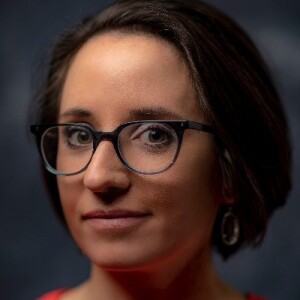
Wednesday Aug 16, 2023
158. Tamara Cherry: Ethical journalism and Trauma
Wednesday Aug 16, 2023
Wednesday Aug 16, 2023
Welcome back to Locked Up Living Podcast, Today we are joined by Tamara Cherry, who's a trauma researcher, author, and communications consultant who spent the bulk of her career as an award-winning crime reporter in some of Canada's largest newsrooms, including the Toronto Star, the Toronto Sun, and CTV News Toronto. In 2019, she left journalism to launch Pick Up Communications, a public relations firm that supports trauma survivors and relevant stakeholders. She is also the author of the Trauma Beat, a case for rethinking the business of bad news, where she draws on the experiences of more than a hundred trauma survivors from homicides to traffic fatalities, sexual violence, to mass violence as she reflects on all the way she gets things wrong as a crime reporter when she thought she was getting them right.
TIMESTAMPS[02:09] Tamara’s background[06:14] Balancing needs of the public, organization & subject of the story[09:45] Good intentions aren't enough [11:34] There's no too young in dancing[15:04] Do the emotional stories bring about change?[24:52] What journalists see on screens[31:00] Difference between hourly news vs 24-hour news[40:19] Why aren't more journalists talking about this issue?[43:51] Less empathetic journalists, what does that mean for news[47:48] About Tamara's PR company[50:24] How Tamara looks after herself[54:01] Self-support program for journalists
RESOURCES MENTIONEDThe Trauma Beat: A Case for Re-Thinking the Business of Bad News
Connect with Tamara Cherry on LinkedInConnect with Dr. Naomi Murphy on LinkedInConnect with David Jones on Linkedin
Thanks for tuning in!
If you liked our show, please LEAVE A 5-STAR REVIEW, like, and subscribe!
Find us on the following streaming platforms:
Podbean
Apple
SpotifyAmazon Music
Google Podcasts
IHeart RadioPlayerFMPodchaser
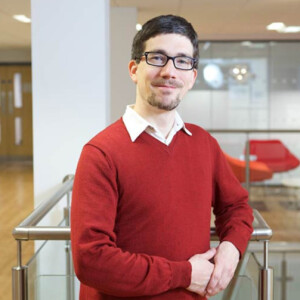
Wednesday Aug 09, 2023
157 Jens Binder: Causes and Consequences of online radicalisation.
Wednesday Aug 09, 2023
Wednesday Aug 09, 2023
Jens is a psychologist working in collaboration with HMPPS to understand online radicalisation.
'One of the more sobering findings is the prevalence of mental health issues (in the widest sense) among those labelled as radicalised extremists. Prevalence is quite high, and it is highest among those who got radicalised through online influences. And, as many have expected, autism spectrum condition is at the top of the list, but is by no means the only entry.'
Jens is Associate Professor of Psychology and a member of the Department of Psychology in the School of Social Sciences.
Jens is currently course leader for the MSc Cyberpsychology. In the past, he has been a course leader at the UG level and an Associate Course Leader for the Professional Doctorate in Forensic Psychology. His teaching focuses on Social Psychology and Cyberpsychology. He also regularly supervises 3rd year dissertations, Masters projects and PhD-level projects.
Jens studied at the Universities of Tuebingen, Germany and Massachusetts, US. He completed his doctoral work in 2005 in the area of small group decision-making and negotiation under the supervision of Michael Diehl.
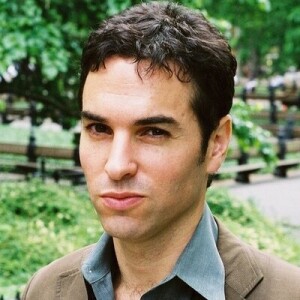
Wednesday Aug 09, 2023
156. Eyal Press: What’s the cost of Dirty Work?
Wednesday Aug 09, 2023
Wednesday Aug 09, 2023
Eyal has spent his life thinking about the kind of dilemma we mostly seek to avoid. What is it like to work in a prison or a meat packing plant? How does this affect the way you relate to others?https://us.macmillan.com/books/9780374140182/dirtywork
https://www.nytimes.com/2021/08/17/books/review/dirty-work-eyal-press.html
https://www.nytimes.com/2023/07/16/podcasts/the-daily/the-sunday-read-the-moral-crisis-of-americas-doctors.html
Eyal Press is a writer and journalist who contributes to The New Yorker, The New York Times and other publications. He is also a sociologist with a PhD from New York University which along with his family background goes some way to explaining his deep sensitivity . He was born in Israel and grew up in Buffalo, which served as the backdrop of his first book, Absolute Convictions (2006). His second book, Beautiful Souls (2012), examined the nature of moral courage through the stories of individuals who risked their careers, and sometimes their lives, to defy unjust orders. His most recent book, Dirty Work (2021), examines the morally troubling jobs that society tacitly condones and the hidden class of workers who do them. A recipient of the James Aronson Award for Social Justice Journalism, he has received an Andrew Carnegie fellowship, a Cullman Center fellowship at the New York Public Library and a Puffin Foundation fellowship at Type Media Center. Eyal is also a Podcaster himself cou can see the link in the shownotes.We wanted to talk with Eyal because we have always intended our podcast to consider the deep moral, social and psychological reasons of why terrible things happen and what underlies the decisions people make when in such situations. Eyal’s book, Dirty Work, argues that people are mainly pressured to do tasks which mostly the rest of us hold in disdain while being complicit in their continuation. The book studies three areas prison work in the USA, drone pilots in war situations and workers in meat and poultry factories. Each of these are shocking and deserving of a conversation of their own but in this conversation we shall mainly focus on prison work in the southern Unites States.

Wednesday Aug 02, 2023
155. Leah Dawang. What is the Safe & Sound Protocol?
Wednesday Aug 02, 2023
Wednesday Aug 02, 2023
Leah Dawang serves as Unyte’s Partnership Cultivation Manager, envisioning allmembers of the helping and healing communities linking arms in Love and transformingthe world. She supports Unyte in cultivating integrated relationships with partnersaiming to impact the world for good through nervous system health and wellbeing. Afterdeparting a career in tech start-ups, traveling the world and embarking on her ownhealing journey, Leah rediscovered her love for Love and founded Clear The Way, asomatic restoration practice devoted to creating the conditions for healing and clearingthe effects of trauma blocking one from receiving unconditional Love. She is an SSPprovider and is in the final stages of becoming a Somatic Experiencing practitioner. Witha background in parts work, interpersonal neurobiology and energy healing, Leah ispassionate about all things that lead to Love including learning and unlearning, richconversation and relationships.
Check out these links.
https://hubs.la/Q01M4yd20
https://www.linkedin.com/company/integrated-listening-systems/
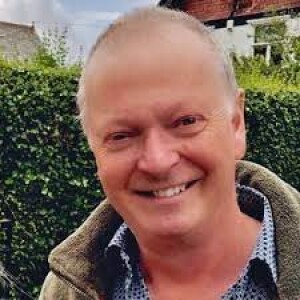
Wednesday Aug 02, 2023
154. Dr Peter Duffy.Whistleblowing and retaliation in the NHS
Wednesday Aug 02, 2023
Wednesday Aug 02, 2023
Peter Duffy is a very honest and straight talking man. Since this conversation he has retired from his job in the Isle of Man and the NHS. What a tragic loss. But this, often painful, conversation, tells why he thinks now is the time.
Dr Peter Duffy is a consultant Urological surgeon. He was lead clinician of the department in Morecambe Bay Trust from 2003 and in about 2008 they won a major national award for the quality and efficiency of this speciality service. He began to be concerned about the direction of the Trust and eventually stood down from his position as lead clinician and was eventually unfairly dismissed in 2016 after having just won the Trust’s doctor of the year award!
As a whistleblower, it proved impossible to find work in the UK’s NHS and he took up a job on the Isle of Man in early 2017. In 2018 I won my case for unfair constructive dismissal in the Manchester Employment Tribunal.
In 2020 – 2021 we had the COVID pandemic, which almost completely separated him from his family for some 18 months as a result of the Manx lockdown. During this period, he was awarded an MBE for his work with the COVID +ve cases on the island.
https://www.lancasterguardian.co.uk/health/lancaster-whistle-blower-peter-duffy-quits-his-profession-amid-fears-hes-being-hunted-by-the-nhs-4173054
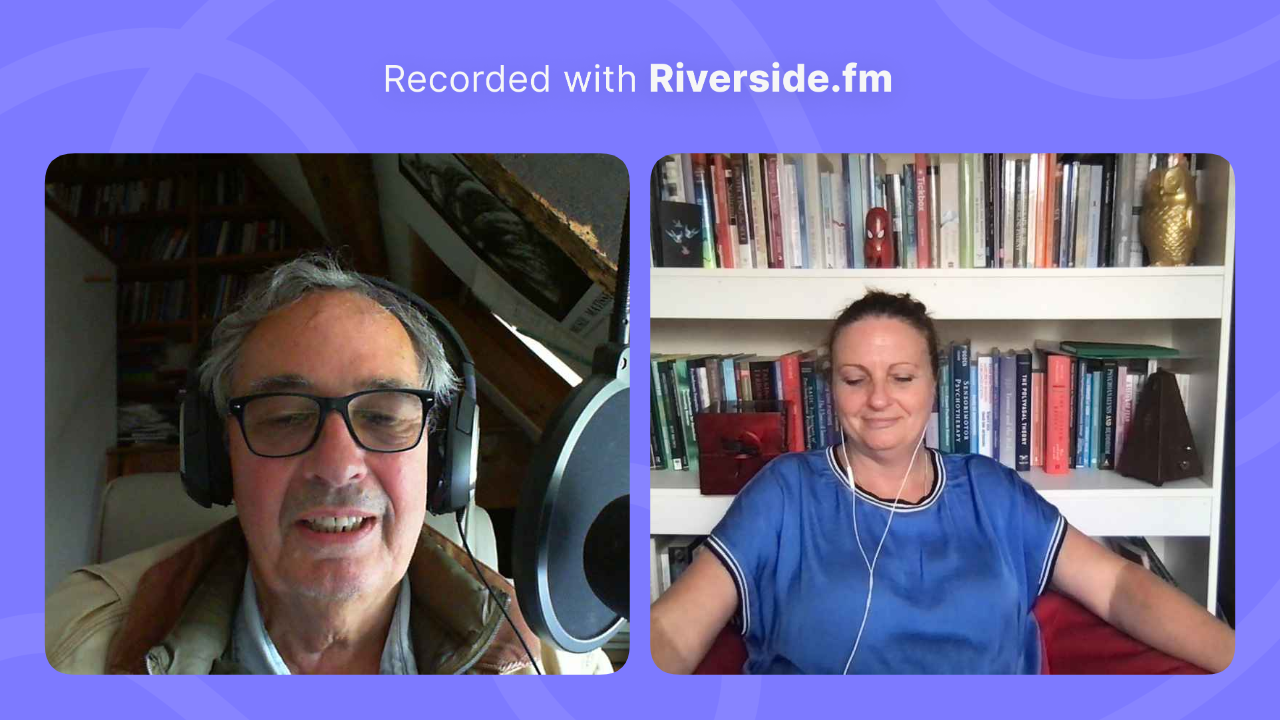
Why 'Locked up Living?'
David is a psychotherapist who has worked leading therapeutic communities in English prisons and in Millfields, an NHS forensic setting in East London. Naomi is a Consultant Clinical and Forensic psychologist who was, for many years, clinical lead at The Fens, a treatment programme for serious offenders at HMP Whitemoor. We had both experienced painful and destructive forces in our work and so we set out to discover what things make a positive difference for staff and service users and what is it that makes things go wrong. Of course we found out that there is no easy answer but there are many fascinating and valuable experiences to be heard.






